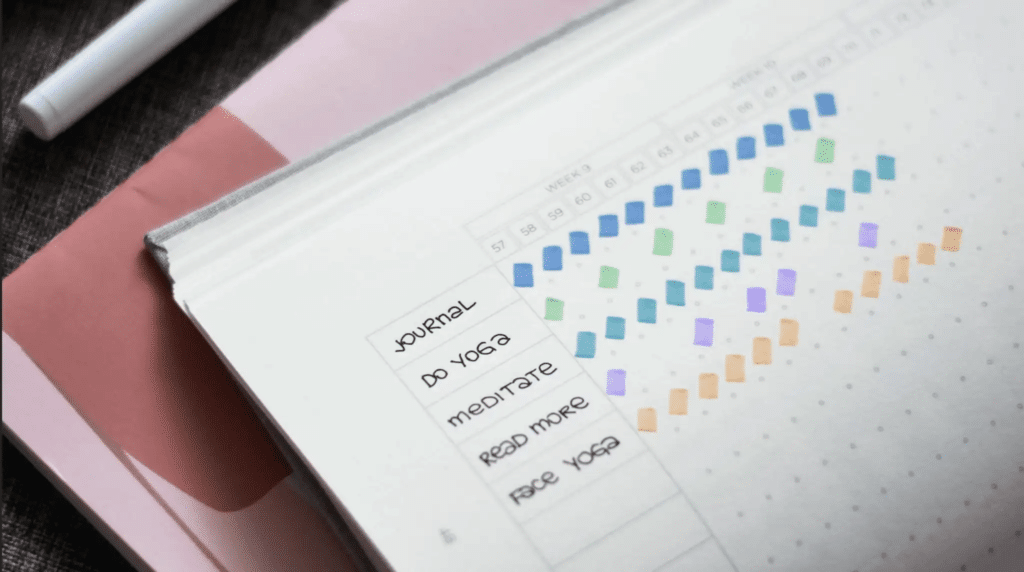This post may contain affiliate links, which means I’ll receive a commission if you purchase through my links, at no extra cost to you. Please read full disclosure for more information.
TYPICAL INVESTING VS INVESTING IN YOURSELF
When people talk about investing, they are typically referring to purchasing an asset that is expected to appreciate in value over time. These assets can be stocks, real estate, rare art, and other types of property.
Individuals are willing to invest their money in these things because they anticipate that it will pay off. They believe the asset will increase in value.
Do you think about investing in the same sense when you are investing in yourself? Do you see the return on the things you are doing every day?
The best investing you can do
I believe investing in yourself is the best type of investing you can do. When you invest in yourself, the returns on the investment will show up in many areas.
With a purchase of a stock, you can buy a share at $50 and believe that it will go to $70. If you sell the stock at $70, you know you have gained $20 in value for that share.
The returns on investing in yourself aren’t as clear. Because of this, many do not focus on investing in themselves.
In this post, we’ll share 21 ways to invest in yourself that are likely to have a positive return on investment. If you do all 21, the benefits from them all will compound on top of each other and you can begin to see large improvements.
The 21 ways are divided into 6 groups:
- Learning and skills
- Health
- Happiness and well-being
- Habits
- Money
- Relationships
You can invest in yourself in each of these areas of your life.
21 WAYS TO INVEST IN YOURSELF AND YOUR CAREER
Learning and Skills
Always invest in your education and your skills. They will equip you with the tools needed for life and your career. So many things can be solved with more knowledge and more capability.
1. Develop your skills

Invest in your abilities by developing your skills. To move up the ladder in life and in your career, you will need skills.
In your job, you need skills in communication, Excel skills, public speaking etc. In life, you need skills for doing your taxes, socializing with others, changing a tire, etc. Try to fill your time with productive actions such as building new skills. The more skills you acquire, the more you can do.
2. Learn how to learn
One of those skills you should develop that is worth its own section is learning how to learn. We were rarely taught how to learn properly when we were growing up.
As time has passed and more research has been done, the most effective ways of learning have been uncovered. Check out our post how how to learn more and learn faster.
Also read books that teach you how to learn and optimize your brain:
- Limitless by Jim Kwik (Limitless book review)
- Make It Stick (Make It Stick book review)
- Spark by John J. Ratey (Spark book review)
- A Mind for Numbers by Barbara Oakley
3. Read books
I’m a big supporter of reading books. When you purchase a book, you may spend $20 buying it from Amazon. This $20 is an investment to acquire the knowledge the book shares. If this is an insightful book with plenty of substance, the return to you get should be well over the $20.
For example, let’s say I spend $20 on a personal finance book, like I Will Teach You To Be Rich. That book teaches me how to negotiate down my credit card rates, which saves me $1,000 over the course of a few years. The book easily pays itself off in the value it provides.
Be willing to spend on books if you believe that a book’s value exceeds its price. It nearly always does.
4. Watch YouTube

YouTube can be a place to watch prank videos or another platform to educate yourself. There are plenty of educational YouTube channels out there. Invest by watching channels related to your life and career goals.
If you want to gain muscle and lose fat, subscribe to channels on health and fitness. If you want to further your career by learning accounting, subscribe to an accounting channel.
You can have entertainment while learning and improving at the same time. It’s all what you make of your time on YouTube.
5. Take online courses
Websites like Udemy and Skillshare make it easy to learn whatever it is that you are interested in learning about. These courses do cost money, but again, the benefit gained from a course can outweigh the costs.
The cost-benefit analysis will depend on what you are learning and how you will apply that knowledge. Courses are great platforms for a step by step approach to learn a skill or topic.
Health and Fitness
Health and fitness are obvious areas you should invest in. Although we know what we should be doing, it can be hard to execute. Focus on implementing what you currently know and what you learn in the future.
6. Eat for health and nourishment
Stop eating just to eat or eating for pleasure. Try to eat for health and nourishment. You don’t have to eat clean 100% of the time, but you should definitely aim to do so a large majority of the time.
When you invest in healthy food choices, you supply your body and brain with what it needs to perform. Feeling good and operating at peak performance can lead to many benefits on its own.
7. Exercise

Exercise will help keep you healthy, strong, and limber. This helps you with functioning in day to day life. Exercise can also improve the performance of the brain, as John J. Ratey has discussed in his book, Spark.
An investment in exercise is one that will pay off for years to come. The mental health benefits of exercise are also worth investing in. You’ll feel good due to the endorphins that are released, you’ll feel confident in your own body, and the discipline you develop can be applied in other areas as well.
8. Take supplements
Supplements can be hit or miss depending on what type you’re taking. The supplement industry is so vast that it can be hard to find quality products for the problems you are looking to solve. If supplements can help you reach your goals, invest in them.
As an example, for my day, I take supplements related to the performance and recovery of my body for physical activity, including:
- Pre-workout
- Collagen protein
- Green superfood mix
I also take supplements so my mind stays focused and sharp for the whole day
- Coffee or tea
- Brain Octane Oil
- L-theanine
- Vital Vitamins Brain Booster or Alpha Brain
These supplements are worth the investment to me so I purchase them. Every edge counts.
9. Prioritize sleep and recovery
Invest in developing good routines and habits for sleep and recovery. You should do all you can to ensure you are having the highest quality sleep. If you spend one-third of your life in bed, you should invest in the best mattress, pillows, and sheets.
Great sleep and recovery provide the foundation for everything else in your life.
Happiness and Well-Being
Don’t make investments in your life at the expense of your happiness and well-being. Make sure you are taking care of yourself and creating a life that is fulfilling.
10. Focus on mental health

Simply put, do things that will take care of your mental health and make you happy. Life is meant to be joyful. Anything that can bring you joy without disrupting other areas of your life is worth the investment.
11. Travel and have experiences
Many avoid traveling because of the cost. I’ll admit, traveling can be costly, but anytime I have saved and taken a trip, I was so grateful that I did.
Travel not only creates memories, but is an eye-opening experience that can teach you a lot as well. Through travel, you can reflect on your life, your goals, and figure out what path you want to take. You’ll learn about other cultures and ways of life that can help you shape yours.
12. Get massages
Massages don’t need to cost $100. You can find places that offer a great 1-hour massage for under $30. Getting one every so often can be a treat to yourself.
Massages will help you relax and relieve tension and stress in your body. In my opinion, the results are worth much more than the $30 you spend. A massage can act as a reset button for you after a long stretch of hard work.
Habits
13. Break bad habits and start good ones

Habits take time and a whole lot of effort to change or develop. Breaking bad habits and starting new ones will take a lot of willpower up front, but this investment will pay off.
Start with small changes. In his book Can’t Hurt Me, David Goggins talks about increments of 5% to 10%. When you are making habit changes, make changes in 5% increments (Can’t Hurt Me book review).
If you are trying to cut down on sugars and carbs, eat 5% less of them each day or each week. If you are training for a marathon, run 5% farther than you did the day before. By changing your habits in small, attainable increments, the changes will be gradual enough to sustain the effort.
14. Get organized and declutter your stuff
A cluttered environment can lead to a cluttered mind. When things are in order, it can help you feel in order. Invest your time in becoming organized and tidying up your environment at home, at work, and in your car. Once things are set in place, work to keep things organized.
15. Be willing to spend for what you need
Don’t be cheap when it comes to materials or resources that you need for your goals and day to day life.
For example, you need a new laptop for school. You opt for the laptop with lower storage because it’s $200 cheaper. However, you quickly reach the storage limit after a year and struggle to save things to your computer. Because of the lack of storage, the computer is also slow.
Or, you decide to start running for a marathon and purchase $60 shoes rather than the reputable brand shoes that cost $125. After only three months, your shoes are falling apart and you need new ones.
Always spend for quality and convenience. It will be worth the price. Quality products will make your life easier and save you time.
16. Engage in a hobby or creative activity

A hobby or creative activity can be a good investment of your time and money. It will offer you an outlet and bring you joy and entertainment. This will help you keep balance in your life and give you something else to become skilled at.
Working 100% of the time is not healthy. Although it would seem more efficient to spend all your time working, it isn’t sustainable and you can burn out quickly.
Money
17. Build financial literacy and take action
First, invest time and effort in becoming financially literate. Read books, take classes, and watch YouTube videos on personal finance and investing. Once you have this knowledge, you can then save and invest your money.
The sooner you become knowledgeable on finance, the better. Many of these topics are not taught in grade school or even in college for that matter (for non-business degrees). Having sound finances can take away a lot stress in life.
Here are a few posts to get you going:
- Importance of Saving Early in Your Career
- 10 Best Tips on How to Increase Your Credit Score in 2020
- Roth IRA vs Traditional IRA
- Why Interest Rates Matter & What You Need to Know as a Consumer
18. Try to start a side business
A side business can also double as your hobby and creative activity. It has been my hobby for the past few years.
Building a side business or side hustle is a fun project to work on that has potential for a large upside if your business takes off. You’ll learn many skills and develop a business mindset.
Even if your side business idea fails, the experience you will take away from it will be worth the time and effort. You can start a YouTube channel, sell things on Amazon, do freelance photography, start a blog, and much more. There are dozens, maybe hundreds of paths you can take for low startup cost businesses.
Relationships
Relationships aren’t something you create once and have forever. Relationships need to be tended to and given attention. Work not only to build relationships, but to nurture and maintain the ones you already have.
19. Find a mentor

A mentor in anything will help you avoid a lot of the pitfalls on a journey. If you find a career mentor, they can guide you on what to do and tell you what to avoid. A personal trainer is a type of mentor and can help you become healthier and stronger in the most efficient way possible.
Invest time in finding mentors and building relationships with them so they are willing to guide you in the right direction. A great mentor can save you years of wasted time and effort and can open up doors for you that you couldn’t have opened on your own.
20. Stay in touch with family and friends
Relationships are nearly essential for our lives. We are social animals and need to be around others. It’s easy to become engulfed in your career and push friends and family to the side. Work piles up and you stop making phone calls, attending outings, and showing up to family holidays.
Avoid this at all costs. Don’t burn any bridges or lose touch with those close to you.
21. Attend conferences and events
Attending conferences and events are a great investment for several reasons:
- You’ll meet a lot of people and build your network
- You will learn a lot
- Events get you out of your house
It’s great to get out and hone your social skills at large events. You’ll connect with a large number of people in a short amount of time, which can lead to friendships and/or future opportunities.
SUMMARY
Investing in yourself is the first investment you should make. This post shared 21 ways to invest in yourself under the 6 sub-categories: learning and skills, health, happiness and well-being, money, and relationships.
The returns you get on an investment in yourself and your career aren’t as clear as returns on an investment in an asset like a stock.
Nonetheless, the time, money, and effort spent investing in the 21 ways we shared have the chance to have a meaningful return on investment.



